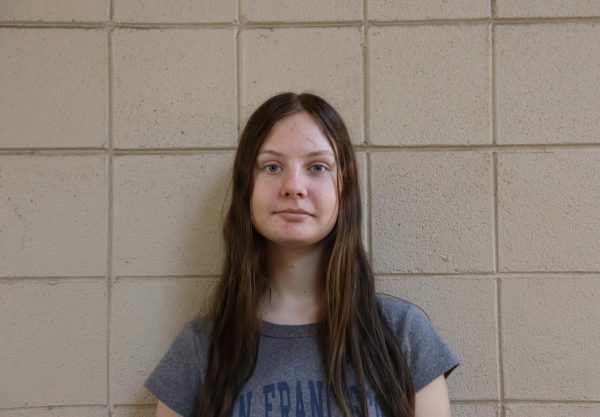For the last eight general elections, California’s 54 electoral votes have gone to a Democratic candidate, and so-called swing states such as Wisconsin and Michigan have long been the deciders of the results of the presidential election. As a result, the average California voter has virtually no effect on who becomes president.
Such was the case again this year.
Regardless, senior Ryan Backhus said that the most important aspect of voting for him was voting in the presidential election. His father, a federal prosecutor, encouraged him and his sister, class of ‘23 alumna Sydney Backhus, to stay educated on government policy and register to vote as soon as possible.
“It’s empowering, in a way, to participate in democracy. I definitely will be voting again in the future, because I personally think it is really important to participate in democracy because that’s what helps the system keep going,” Backhus said. “If you aren’t registered yet, then I encourage you to register as soon as you can.”
Senior Andrew Wu, who registered to vote in 2023 before turning 18, noted that his AP U.S. Government class introduced him to alternatives to the Electoral College system, which he recognizes as flawed. He also cited his work lobbying to state lawmakers with the lobbying collective BRADY as a valuable previous experience in politics.
“Realistically, the Electoral College will not be removed because it requires a supermajority to pass,” Wu said. “What I find most appealing right now as a better alternative to the Electoral College is the national popular vote, which is essentially when states give all of their electoral votes to the most nationally popular candidate. It is essentially a national popular vote, just that the Electoral College is the middleman instead of the end.”
While the California electoral vote was essentially determined for months, numerous state-wide ballot measures were still toss-ups.
Proposition 6, which eliminates the constitutional provision allowing involuntary servitude for prisoners, was not passed despite $2 million in support and $0 in opposition.
Wu voted YES on the measure, saying that prisoners should get paid as any other laborers.
“Your driver’s plate is made by prisoners who get paid less than $1 an hour,” Wu said. “There’s actually no [financial] opposition against [Proposition 6] because simply, it’s just a no-brainer measure. Why do we need slavery?”
Proposition 36, which passed by a sweeping 70.4% majority, will increase sentences for theft and drug convictions and allow thefts of less than $950 to be charged as felonies. Wu was most enthusiastic about the theft aspect of the bill, noting that rampant theft in San Francisco has caused businesses in Union Square to close.
“People steal under a certain amount, because it is not considered a felony,” Wu said. “The Valley Fair mall gets broken into with people just running and grabbing stuff, but if it’s under [$950] people just don’t care about it.”
Senior Tas Long, an 18-year-old who also voted by mail-in ballot, did not believe that the proposition was the correct method to deter crime. He was more concerned about the drug crime aspect of the bill.
“Making charges higher for those who are addicted, and then making their lives even harder, I really don’t think is going to help in fighting their addiction,” Long said. “I’ve been to San Francisco, and I’ve seen people who are addicted to drugs, and it is extremely disheartening. Making it even more difficult for them to get a job in the future is just a terrible idea.”
Long also voted YES on Proposition 6 and on Proposition 32, which would increase the minimum wage from $16 to $18 per hour. Proposition 32 did not pass.
“Obviously raising the minimum wage is not the best way to fight poverty, and it will likely lead to price increases over time,” Long said. “But unfortunately, we often don’t get to vote on the best solutions, and I think that this is one of the better ones for helping to get people to a state where they can live at least somewhat comfortably.”
Wu still believes that voting in elections, even ones that seem decided, is essential.
“Everyone is like ‘Oh, California’s going to turn blue, so therefore I won’t vote.’ Everyone has that same mindset and they don’t vote,” Wu said. “You should still vote because you want to ensure that you get your desired outcome. I wanted my voice to be heard.”




























